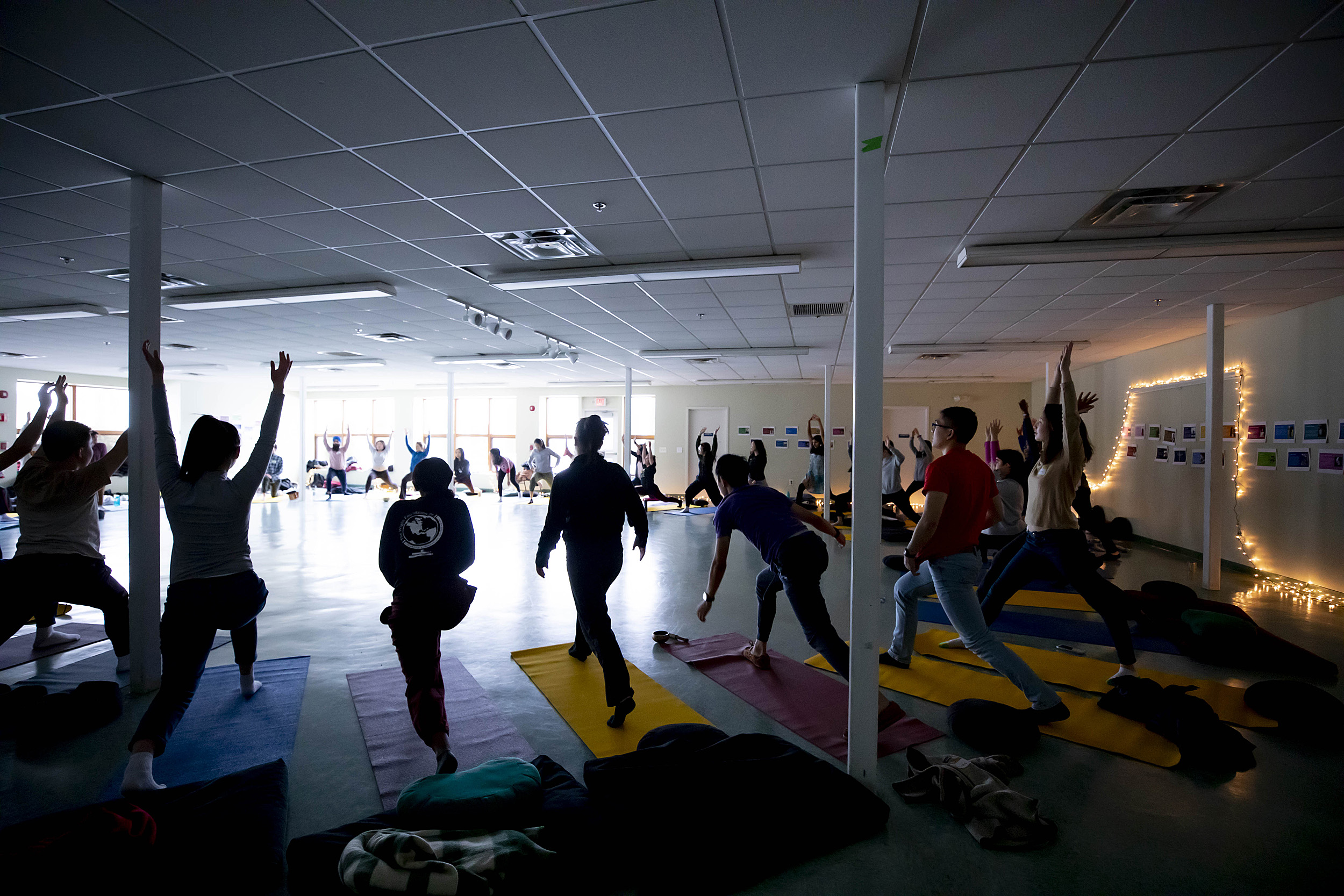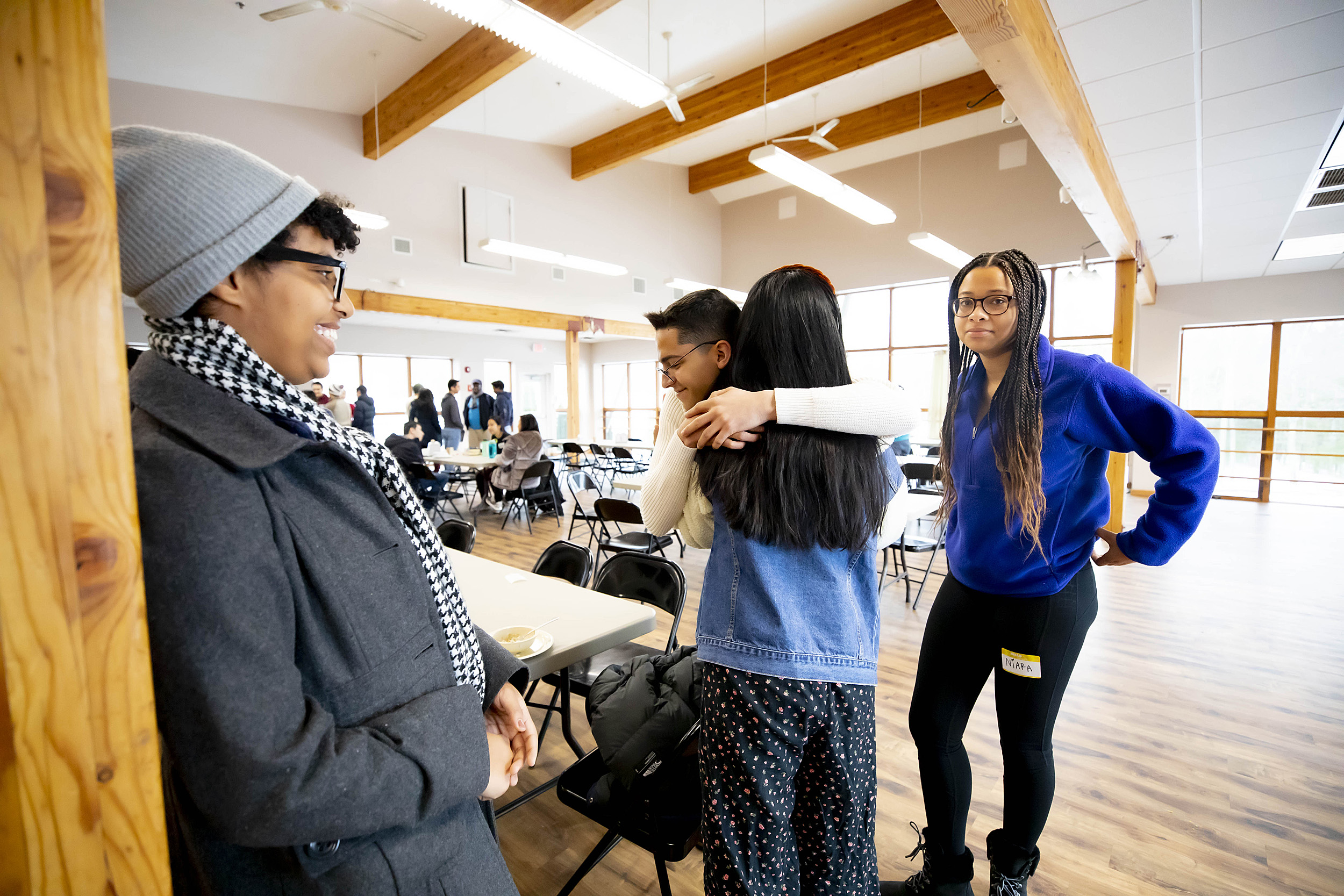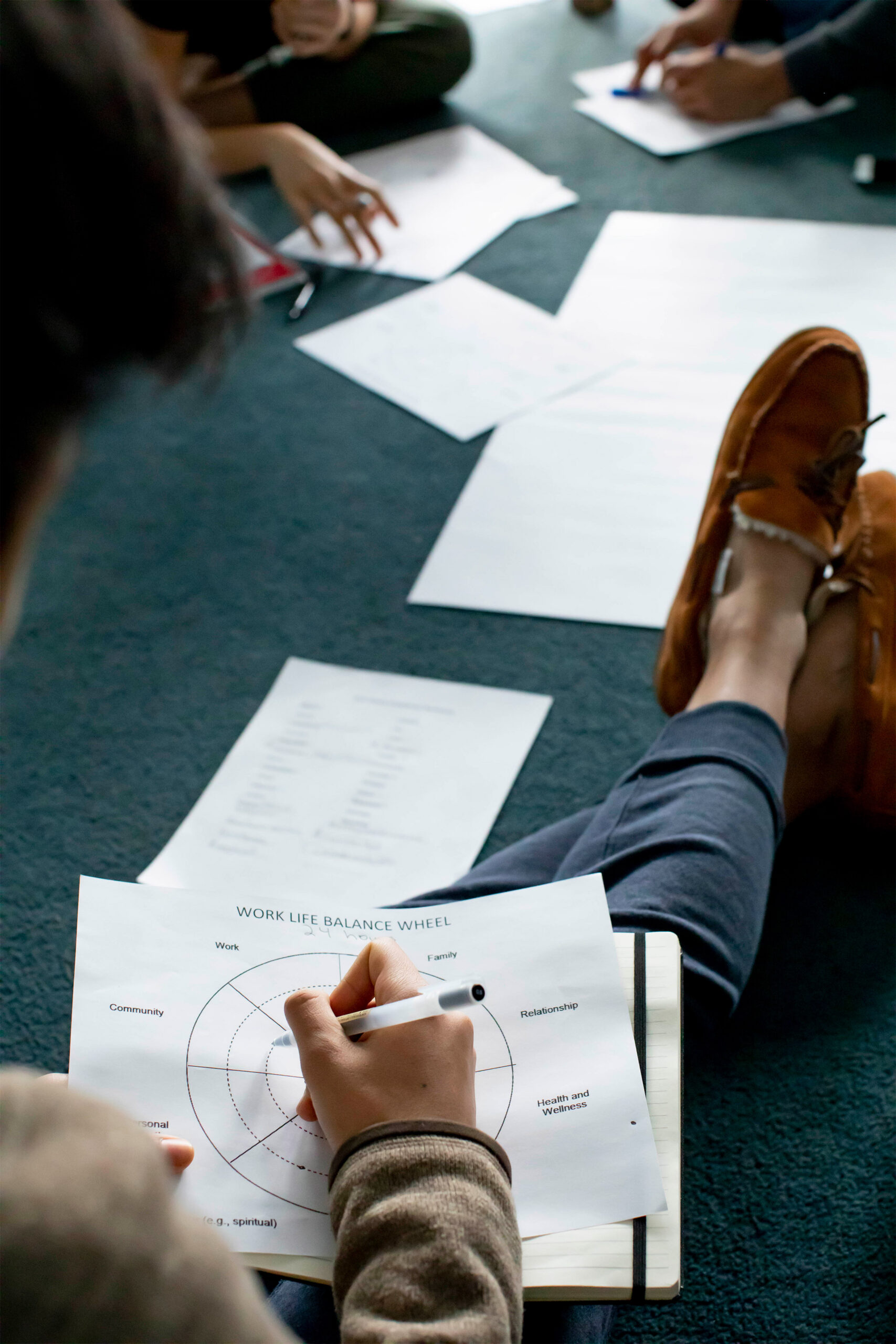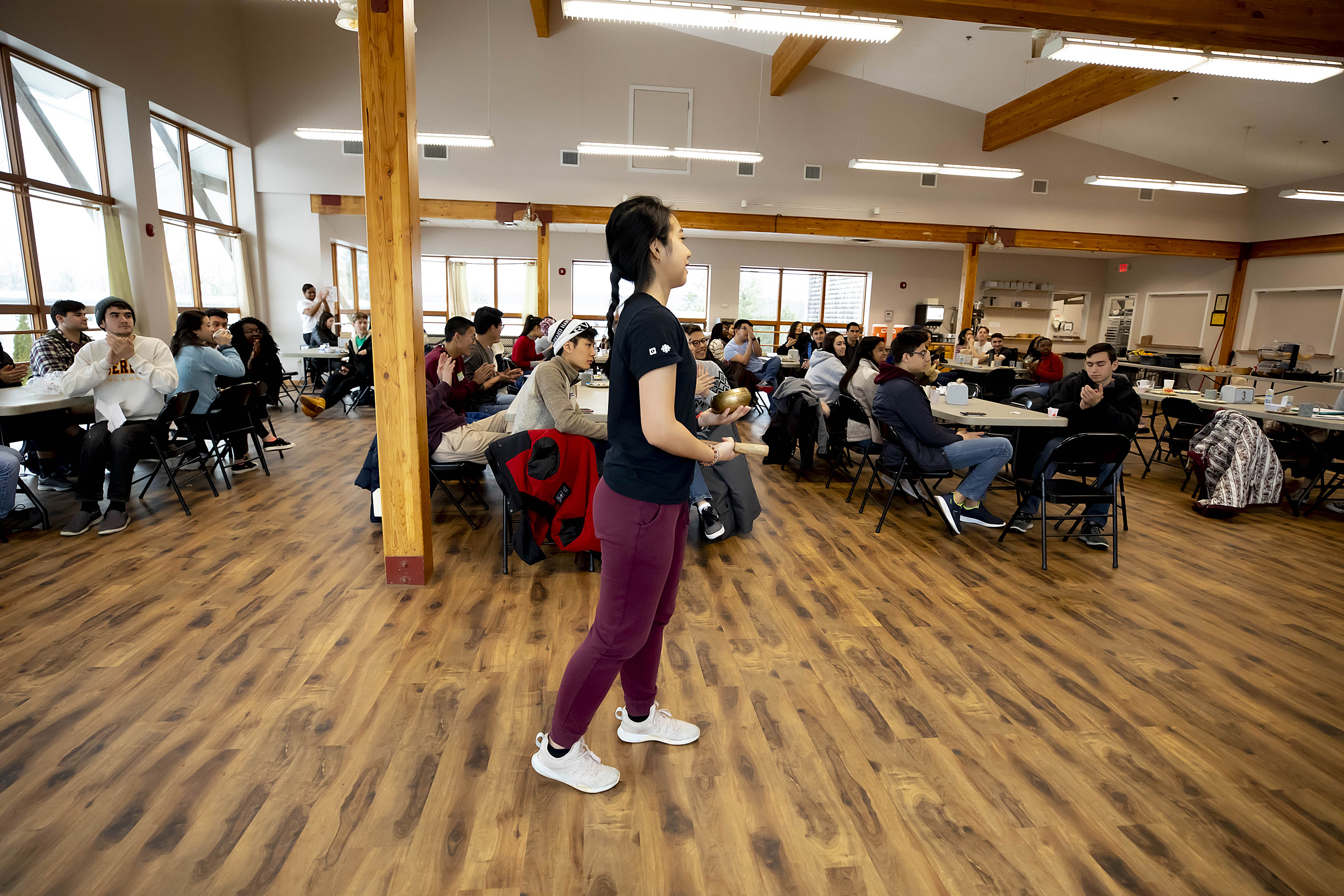
Students participate in a mindful movement and meditation session.
Photos by Rose Lincoln/Harvard Staff Photographer
After the whirl of starting college, a time to regroup
First-year retreat encourages reflection on values and goals and offers tools for wellness and mindfulness — and a chance to meet people and have fun
While most students were returning to Cambridge last weekend, a group of about 50 were gathered in Central Massachusetts, reconnecting with old friends and meeting new ones, in some cases while belting out “Let It Go” during karaoke. The pop anthem from the movie “Frozen” about surmounting tough challenges seemed a fitting choice for these first-years who’d made it through their transition to College and were looking ahead to spring semester.
The Saturday karaoke session, which ran overtime due to enthusiasm, was one of the activities offered during the First-Year Retreat, held over three days at the Prindle Pond Conference Center in Charlton. The goal of the annual gathering is to help students regroup and reflect on personal identity and core values through guided sessions with older students, coupled with various options for activities, mindfulness and wellness training, and relaxation.
“I didn’t expect to come to so many realizations about myself so quickly, but I did,” said Ibrahim Mammadov ’23, who passed on karaoke for an afternoon of painting with watercolors. “We’re learning a lot about optimism and positivity, and how to solve problems in a new way.”
The trip was organized by the First-Year Experience Office, part of the Harvard College Dean of Students Office. The retreat, now in its fifth year, is offered on a first-come, first-served basis during Wintersession at no cost to students. Financial support for the retreat is provided by the Harvard College Dean’s Office and the Dean of Students Office.
“One of the benefits of having the retreat between the fall and spring semesters is that the participants have had a full semester of experiences to draw on, and they can reconnect with what got them here and what’s special about their life journey so far,” said Madeleine Currie, resident dean of first-year students, who has overseen the retreat since it began in 2015. “There is also something powerful about taking people out of their usual physical environment, which accelerates reflection and making new connections in your own mind and more connections to one another.”
For some students that social piece was key.

“If you didn’t make the most social connections because you were busy studying during the first semester, this is a great way to meet new people,” said Tuzo Mulunda ’23, who learned about the retreat through friends. “Getting out of Cambridge and coming out here to Prindle Pond has been great, and I’ve just been going into every activity with an open mind.”
The schedule is loosely structured around the themes of past, present, and future. Staff directors Nina Bryce and Stacey Blondin worked with student facilitators for two months to create a curriculum that encouraged participants to think about their lives on campus and establish goals for the upcoming semester.
“My main hope is that, at the end of the weekend, the participants feel a little less tightly wound in terms of the pressures of being a Harvard student,” said Bryce. “A lot of students I work with talk about imposter syndrome and worrying about optimizing every moment, so I hope they feel a little more free to do what they really want and to connect with each other. I want them to have that sense of living in alignment with what really matters to them, going into their second semester.”
On Friday, shortly after arriving by bus, facilitators worked in small groups with participants to create a “River of Life,” a drawing project in which people create landmarks for important moments in their lives and discuss the effects of these moments on their lives today.
Saturday’s activities included “Instant Best Friends,” modeled on a method outlined in a New York Times piece, “The 36 Questions That Lead to Love.” Students met in small groups and pairs to ask each other questions like: “If you were able to live to the age of 90 and retain either the mind or body of a 30-year-old for the last 60 years of your life, which would you want?” and “Would you like to be famous? In what way?”
Before leaving on Sunday afternoon, participants developed goals for personal growth, work, education, and relationships that they hope to achieve over the next months and years.


Students participated in activities like mapping out their work/life balance on worksheets. Caroline Ko ’21 strikes the gong to get things started after breakfast on Saturday morning.
“The retreat put me into a really great mindset to start the new semester with, and the reflective activities left me with some actionable goals that I’m bringing with me as I start class again,” said Yoel Hawa ’23. “I think it was really well organized, and I loved all the planned activities that were set up for us, but my favorites were the spontaneous ones that we just did together, like singing while hiking through the woods or playing Mafia late into the night.”
Hawa and Mammadov were two of the 13 participants who turned off or surrendered their phones for the weekend as a way to fully unplug from everyday stressors and engage more meaningfully with others on the retreat.
“I really wanted to be present,” said Mammadov.
For the student facilitators, the retreat offered a chance to learn new skills and create new friendships with each other and with the student participants, most of whom they wouldn’t encounter on campus. Six of the 15 facilitators were former participants, and three were taking a return crack at the position.
“Talking to first-years about stresses in their lives made me remember similar stresses my freshman year, and think about how these things have changed or stayed the same,” said Nish Sinha ’21, a physics concentrator and facilitator. “The retreat was filled with kindness, intentionality, and laughter, and I definitely will try to take these ideas into the second half of my junior year.”
“We talk about how students develop a sense of belonging, and this is a time when the participants start to experience that in a way that perhaps they haven’t in the first semester, when everything feels so new,” said Currie. “It’s wonderful that the students have this community experience where they can be more authentically themselves.”







